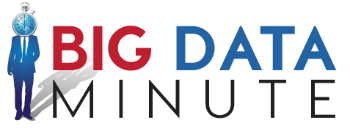In the never-ending pursuit of productivity, process automation is often an appealing solution for a business department or company division seeking greater efficiency and lower expenses. The ideal approach to the problem is often software that addresses the user’s unique issues, ensuring better fit, smoother deployment and easier adoption. But paradoxically, organizations in greatest need of such a solution may not have the budget for the process automation tools that will make the biggest impact, or have a culture that embraces change.
A smart process automation consultant can help you spread the cost, share the benefits, and become a company hero by extending the use of your department’s software to other user groups. After all, the same process automation tools can most likely support a variety of related processes.
Tools used to route and dispatch the service workforce can also be used for a sales force, often with just a minor tweak. For example, consider the large telecommunications company whose non-pay disconnect group needed help. This team cut off service at the utility pole for customers whose accounts were in arrears. They operated apart from normal field operations functions as well as the field audit group, which detected illegal connections and theft of service. But on examination, a savvy process automation consultant determined that the procedures followed by these three departments had a great deal in common, and that they both shared key elements with activities of the “feet on the street” sales team.
The new process automation tool designed for the field service department worked very well for the disconnect team and the field audit folks. Joining with the sales team, all three groups became a powerful part of the company’s sales force and drove out the cost of redundant systems. Instead of simply cutting off service at the utility pole for non-paying customers, the team began calling on these customers to offer them the opportunity to settle accounts and keep their service. The tap audit team likewise turned service thieves into honest, paying customers. Service technicians earned sales commissions, the CFO was ecstatic, and the department head who initiated the process automation received kudos from all quarters.
Although distinct from process automation, business intelligence software offers another attractive opportunity to spread the wealth – and costs – among multiple departments. This takes very little salesmanship, as staff members notice that their colleagues in the newly BI-empowered department suddenly have valuable data, and are no longer griping about reports that are out of date on delivery. The interest generated by water-cooler chat can easily lead to BI tools that benefit the entire organization.
Sharing process automation tools among work groups inevitably yields another valuable benefit: as information is shared, communication grows between user groups. As a result, departmental silos that may have developed over time begin to dissolve, leading to a more integrated, mission-focused organization.
An experienced process automation advisor can help you uncover opportunities within your organization to extend custom software applications. It’s just a matter of adopting a broad perspective, rallying support for a change to intercompany corporative processes and then preparing for applause.
To learn more about maximizing process automation, please visit www.cliintel.com or e-mail askcliintel@cliintel.com.








Recent Comments